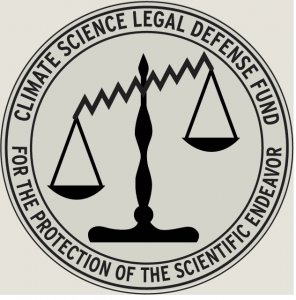March 23, 2017
USEFUL STEPS FOR MARCHING (AND OTHER ACTIVE) SCIENTISTS
Posted by Timia Crisp
Editor’s Note: This blog post was cross-posted from the Climate Science Legal Defense Fund blog.
By Climate Science Legal Defense Fund
 Yes, you know that the Science March’s mission is a simple call to support publicly communicated scientific research and evidence-based policies. But contrary to the March’s stated aims, some still believe that the March is a partisan statement that might alienate the very people whom you are calling. At CSLDF, we have seen well-meaning scientists and academics experience problems after advocating for science (e.g., here) or taking a personal political stance (e.g., here or here). What’s a scientist to do?
Yes, you know that the Science March’s mission is a simple call to support publicly communicated scientific research and evidence-based policies. But contrary to the March’s stated aims, some still believe that the March is a partisan statement that might alienate the very people whom you are calling. At CSLDF, we have seen well-meaning scientists and academics experience problems after advocating for science (e.g., here) or taking a personal political stance (e.g., here or here). What’s a scientist to do?
Don’t fret; prep. If you are one of the many scientists considering participating in the March for Science or engaging in other science-related activism, we are here to arm you with tools that will help you avoid ending up in political crosshairs. Here are a few simple High Knees Marches steps to follow:
Separate Your Work and Private Life. Participate and make statements on your own behalf, and not on behalf of your employer.
- Be clear that you are involved in the March (or other protests) as a private citizen. When marching, do not wear a university sweatshirt, work-issued lab coat, etc.
- Maintain distinct personal and professional email accounts. Even discussions with work colleagues about the March should take place via private email. Be professional whenever you are using email; remember that any email can be forwarded. Check out our blog post on The Importance of Good E-Mail Practice.
- Engage in organizations or discussion about the March with after work-hours.
- If you wish to publicize your participation or opinions about the March, it is best not to provide your work affiliation. Publicizing your participation includes taking an interview with a journalist (remember that you’re on record!), signing a petition, writing a blog post, or posting on social media. If you choose to state your position, clarify that it is for identification purposes only; you are not speaking on behalf of your institution.
Know Your Employer’s Stance. We urge you to keep your participation separate from your work; still, you should go in knowing all the facts (you’re a scientist, after all!).
- Check out whether your institution or employer is supporting the March. Science is collecting statements about the March from various organizations, but the best approach is to directly ask your employer.
- Review your employee handbook or speak to HR about the expectations or rules of your institution. For example, are you allowed to speak out on behalf of, against, or simply in opposition to your institution on specific issues? Are you allowed to speak about the March or other protests while at work?
Determine Whether You (and Your Emails) Are Subject to Open Records Laws. Open record laws allow members of the public to request information from public employees, which can include work records and emails. If you are a federal employee, or work at a state university, you are usually considered a public employee, and may be subject to the federal Freedom of Information Act (FOIA) or state open records laws. Recall that even at private institutions, federal grants may subject you to FOIA. For more information about the federal FOIA and state open records laws, check out our blog posts on What Scientists Can Do.
- Do not advertise the March or any of your plans on your government funded site. Consider who funded your blog and social media accounts. For example, if you run a blog or Twitter account related to a National Science Foundation (NSF) funded project, don’t post about the March there.
- Do not use government-funded computers, printers, or other supplies to prepare for the March.
- Do not use your institutional email to communicate about the March (or any other personal matter).
We believe that it is important for scientists to use their voice — just be mindful of how and where you use yours.
For more information on how to avoid harassment, read our Pocket Guide for Scientists and join the CSLDF mailing list to receive updates about future guides — including our upcoming Handbook on How to Participate in Public Activism.
This post concerns only U.S. laws, and it does not constitute specific legal advice for dealing with the particular circumstances of any individual. If you have any questions regarding your individual situation, we are always available to discuss — just contact us here.

